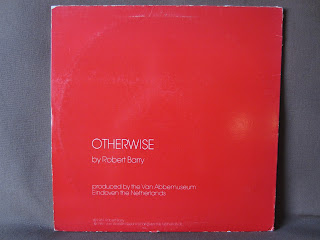Merry Christmas and an Archaic
New Year to all followers and friends of the blog!
Simon Vinkenoog (18 July 1928 – 12 July 2009) was a Dutch author, poet, elocutionist and pioneer of the psychedelic revolution of the last century. He published his first poems around 1950 and kept working his way into the Dutch literary world from the fifties on. In 1959 he willingly tried LSD under medical supervision and later became a protagonist in the world of mind-altering substances, Dutch literature, happenings, free music and advocated for a world in which people lived in astonishment of the universe we belong to and the richness of culture and nature on planet earth. Because his early involvement in the counter culture combined with his literary career, Simon Vinkenoog can be seen as a European example of the Beat Generation. In 1966 he hosted an iconic poetry manifestation in the Royal theatre Carré showcasing a new generation of fresh poets in the Netherlands. If you understand German, check Simon Vinkenoog out in this panel on LSD and Gegenkultur in Europe in the sixties.
William S. Burroughs with Simon
Vinkenoog
In 1968 Vinkenoog took part in the making of the mythical album Woorden (words) together with two other Dutch poets where free form music was combined with poetry. The album was only distributed through literary book stores and the first ´coffeeshops´ of Amsterdam, back when those places where not yet polluted with mass tourism and irresponsible behaviour. In that time Amsterdam was an important international centre of free-thinkers, alternative gatherers and hippies comparable to San Francisco in the US. It's ironic that Amsterdam is often perceived as a freedom city because of the endeavours of sixties and seventies and that now almost nothing relates to those values anymore. The Woorden record is seen by many as one of the most striking examples of the Dutch hippie-movement and spaced out sixties. Also it's one of the most rare albums on the legendary NWW-List.
Anyway, this even rarer record here dates from before Woorden. Liefhebben, zien en proeven (meaining: To love, see and taste) is from 1966 and in record collecting circles often regarded as a literary album. But as the back of the record reveals, this is not just spoken word. The album was recorded on the 30th of December 1966 (literally 50 years ago!) in the in Dutch Royal Tropical Insitute and contains sitars, tabla's, gamelan gongs, indonesian flutes, indian bells etc. It's interesting how the interest in cultures and ethnic instruments of these crazy dope smoking youngsters was still regarded within an anthropological frame. The Tropical Institute was probably delighted that young people wanted to explore their colonial possessions and dig into exotic cultures.
I know most of you will not understand a word from this album, but hopefully you can appreciate it with the given context. The poems are about life, death, rebirth, love, human potential and much much more. One of the poems is about DMT (in 1966 already.. man). I think I saw him one time in my life during a demonstration at the Dam square of Amsterdam on a stage speaking against the ban of magic mushrooms in Netherlands. Vinkenoog did millions of things in his lifetime: he wrote numerous poems, many novels and also frequently wrote on so called 'pseudo-scientific' topics in various magazines. It's important to note that Vinkenoog is not just some hippie-poet, he is ranked amongst all the important writers of the Dutch literature too.
He made two albums with Spinvis (the Dutch Beck?) in the 00's which were his last musical recordings. In the video below I included scans from a little sixties underground book that Vinkenoog compiled. It was called Moksha, a timebook for the alteration of consciousness and drugs. Simon Vinkenoog, a very inspiring person and icon of the Dutch counter-culture. From the liner notes:
I wish that the human heart would beat faster. I wish that I could tell everyone everything I know at once: how the battle between light and dark is won by the light. I wish that people carried the sun with them. I wish that cheerful light would shine from all houses. I wish so many things, I still want so much: peace, peace, peace. I can't say it differently than with words: I don't want to persuade, convince or entice - I Just want you to listen, so you can find your own answers. Listen. And also stop the record, so you can listen to yourself! Have a good trip!
Get it HERE






